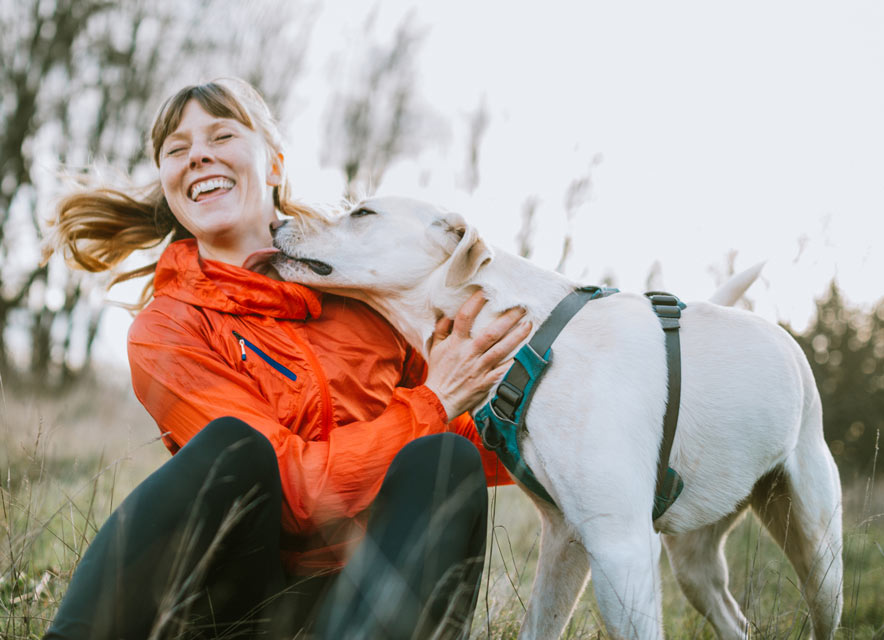Simple Tips for Helping a Dog Lose Weight

If your dog needs to lose weight, you're not alone. Many dogs in the US are currently overweight or obese, and it's adding to or causing plenty of medical problems. Heart disease, joint problems, and diabetes mellitus can all be exacerbated when a dog is too heavy.
Still, helping a dog lose weight isn't always easy. It can be confusing and time consuming to figure out the best way to trigger weight loss in a dog.
First, you should always check with your vet. Find out exactly how much weight your dog should lose and get a recommendation for the best type of food and how much to feed every day. From there, try these tips to help your dog lose weight.
This article can help you start to get an idea of whether your dog has a weight problem: "Hands-On Guide to Checking If Your Dog Is at a Good Weight."
Feed Multiple Meals a Day
Dogs tend to overeat if they're fed free choice. Plus, that feeding style makes it hard for you to tell how much they're eating. Instead, measure out the amount your vet has recommended your dog eat for the day and break it into three or four small meals (of course, this depends on your schedule, also, and whether you're home enough to be able to do it.)
Feeding meals helps your dog feel full more often, and that can decrease begging behaviors. It also helps keep the metabolism going, so your dog is burning calories all day long.
Don't Give Treats
It can help your dog lose weight if you eliminate treats from the diet. Instead, use part of the daily ration of kibble as treats when you need one. As you're breaking up the daily allotment of food, put a little aside to use as treats. Your dog doesn't care so much about what the treat is as about the fun that goes into receiving one from you, along with your excitement and praise.
Get Your Dog to Work for Food
In the wild, dogs need to work for every meal they receive. And our domestic dogs enjoy working for food too. Not only does it give them physical exercise, but it also combats boredom and helps keep their mind sharp.
You can have your dog work for food in one of two ways:
- Hide small allotments of food around the house for your dog to "hunt" and find throughout the day.
- Use a puzzle toy to put your dog's kibble in, so he must spend time working on getting it out.
- Give kibbles as treats during dog training sessions.
Make Exercise Time Fun for Both of You
Exercise for your dog doesn't have to be a chore for you. It also doesn't have to be monotonous, doing the same walk twice a day every day. Add fun and games to your dog's exercise routine, and you'll both reap the mental and physical benefits.
For example, try some of these tips for indoor exercise for your dog: "10 Ways to Keep a Dog Busy Inside."
Or, head outside for some fetch, agility training, or tug-of-war.
Check out this article for even more ideas: "Games You Should Be Playing with Your Dog."
You May Also Like These Articles:
How to Tell If Your Dog Is Bored
Tips for Feeding a Hungry, Overweight Dog
Hands-On Guide to Checking if Your Dog Is at a Good Weight
Disclaimer: This website is not intended to replace professional consultation, diagnosis, or treatment by a licensed veterinarian. If you require any veterinary related advice, contact your veterinarian promptly. Information at DogHealth.com is exclusively of a general reference nature. Do not disregard veterinary advice or delay treatment as a result of accessing information at this site. Just Answer is an external service not affiliated with DogHealth.com.
Notice: Ask-a-Vet is an affiliated service for those who wish to speak with a veterinary professional about their pet's specific condition. Initially, a bot will ask questions to determine the general nature of your concern. Then, you will be transferred to a human. There is a charge for the service if you choose to connect to a veterinarian. Ask-a-Vet is not manned by the staff or owners of DogHealth.com, and the advice given should not delay or replace a visit to your veterinarian.



